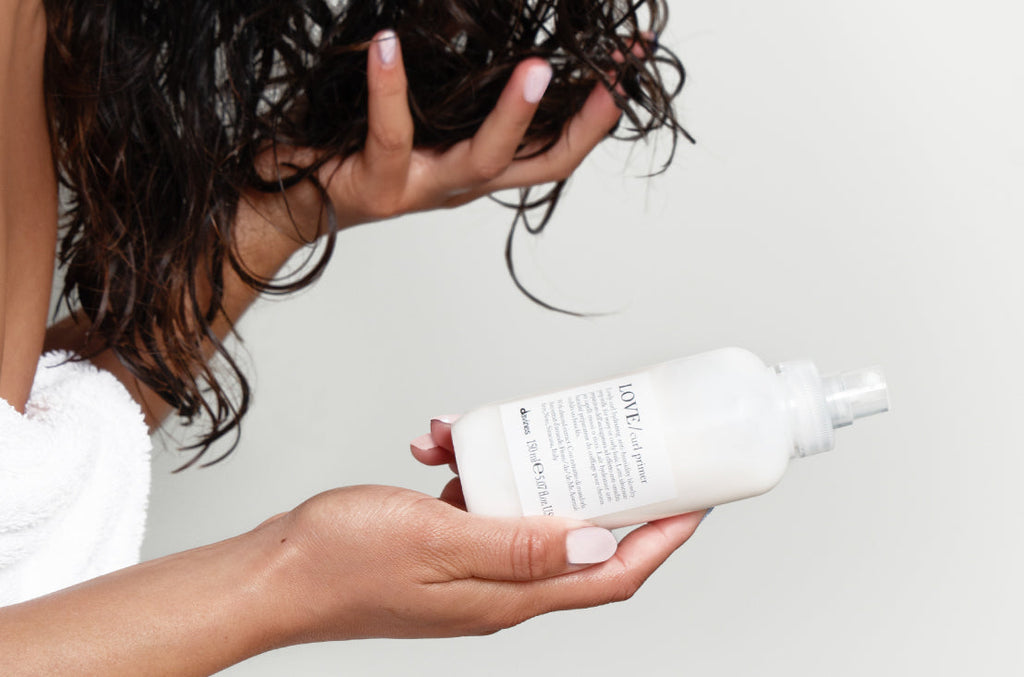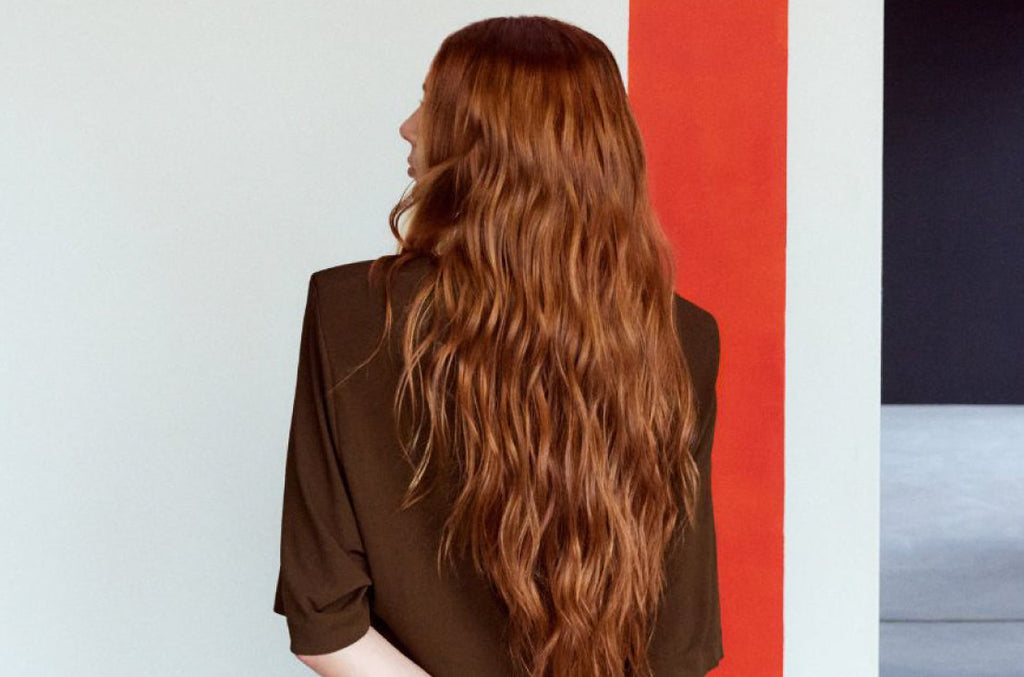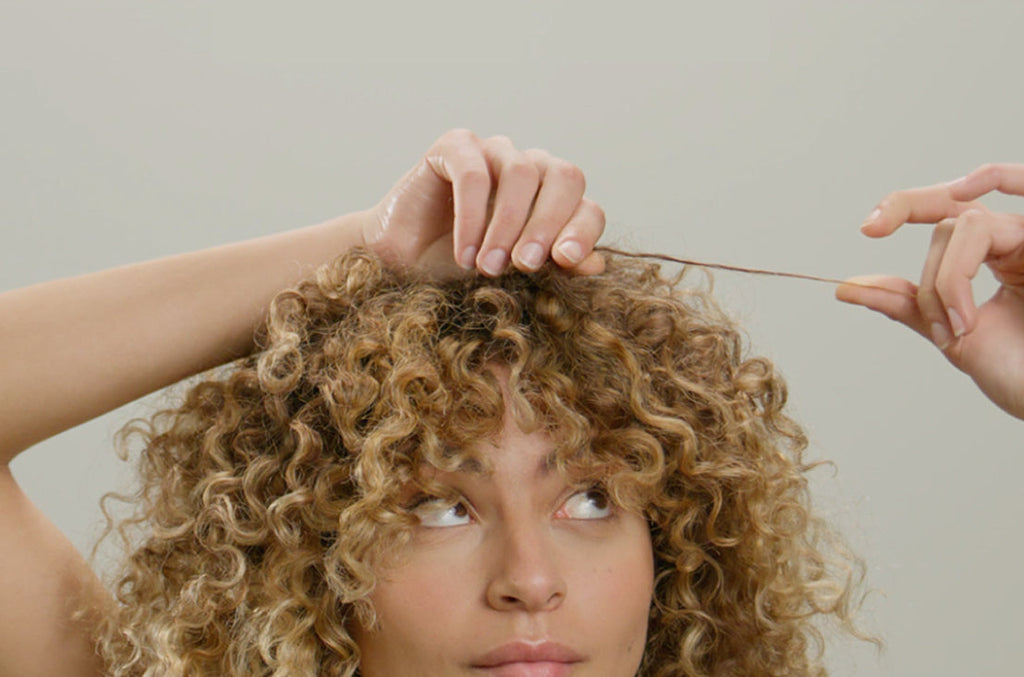Pay with Klarna
Free Carbon Neutral Shipping On Orders $75+, Plus Free Samples!
Pay with Klarna
Free Carbon Neutral Shipping On Orders $75+, Plus Free Samples!
No two heads of hair are exactly alike, and the same goes for haircare routines. But even with differences in texture, length and density, there are some similarities that (should be) seen across all hair regimens: the right shampoo, conditioner, and styling products, and finding the perfect amount of deep conditioning with a rich hair mask to work into your routine.
While you might have a favorite conditioner that’s a key part of your weekly rotation, they can only do so much. So when you notice your strands are looking a little drier than usual, or you have damaged hair and see more breakage, it’s time to turn to a deep conditioner for help. Deep conditioners help bring moisture and nourishment back into dry strands, and are essential to maintaining strong, shiny, and healthy hair. Your hair needs moisture to be healthy, and that moisture is key to making your hair elastic enough to resist tension or styling stress without breaking.
But every routine also needs balance — if you use a deep conditioner too often, over-conditioning will leave you with hair weighed down and lifeless from too much product build-up. After your strands have absorbed what they need, any extra product will be too heavy on your hair. And on the other side, your hair will most likely end up stiff, dry, and prone to breakage if you don’t deep condition frequently enough. So just because your deep conditioning routine is working right now, doesn’t mean it shouldn’t be adjusted depending on changes in your lifestyle. New seasons, amount of outdoor exposure, and especially things like heat styling frequency can affect how often you should deep condition your hair. Shop our suggested products for Winter here.
photo by @karlibobarley
Generally, we’d recommend starting by deep conditioning your hair once a month, and moving up to once a week if you’re still noticing excessively frizzy or dry hair. Just make sure to let it set for at least 15 minutes, and up to 30 minutes if you’re tackling more severely damaged strands or split ends. This additional moisture will also help with detangling, since increased softness will make your hair easier to brush through. Here are some of the different factors that can affect how often you should deep condition your hair, as well as times when a nice deep conditioning treatment is recommended:
In general, sun exposure can have a lot of different benefits for your hair: Vitamin D has been known to help stimulate hair follicles, and most people have experienced the free “nature’s highlights” you can get with sun-lightened strands. But too much of a good thing can be detrimental: just like you should limit sun exposure for skin health, prolonged exposure to UVA and UVB rays can damage the cuticle, leading to weaker hair more prone to splitting and breakage. If you’re spending a lot of time outdoors, try to work a deep conditioner into your routine at least once a week to help combat excessive dryness and restore lost moisture.
While you should always use a leave-in heat protectant for hair anytime you’re heat styling, exposing your hair to high temperatures can still lead to excessive dryness — this means you might want to swap in a deep conditioning treatment for your usual conditioner more often, potentially twice a week. And remember, there are other ways you can add body and style to your hair: check out our post on how to get natural waves to learn more tips and tricks.
Curly folks, listen up. You’re probably no stranger to the core rule of curly hair care: the more moisture, the better. Curls need essential moisture to maintain their bounce and structure, as well as to help control frizz and unwanted flyaways. Those with curly hair should start by deep conditioning once a week, and increase the frequency to twice a week if you’re still not getting the nourishment you need. But if you’re noticing your curls are looking a little more weighed down and limper than usual, it's probably a good sign that you’re deep conditioning too often.
Just like with heat styling, color treatments can dry out your hair. Try to add in a deep conditioning treatment after you have a professional color treatment to offset any moisture lost from bleaching or lightening. And as another (more convenient) option, many salons will offer deep conditioning treatments as an additional part of your service — so why not cover both bases in one salon visit? Find your local Davines salon to see if they offer a deep conditioning treatment, and treat yourself.
While chlorine is essential to killing bacteria in public swimming pools, it can also leave your skin irritated and your hair dry. It removes the natural oils from your hair and skin, leaving you with drier strands more prone to damage. So if swimming is a frequent part of your lifestyle, you’ll probably need to work deep conditioning into your haircare rotation more often.
photo by @karlibobarley
If the products you’re using are actually drying out your strands, and therefore working against you, you’ll definitely need to deep condition more often. Check out our blog post on how to moisturize your hair to make sure you’re getting the right amount of hydration into your strands. And if you’ve gone a little heavy on the deep conditioner frequency one month, never fear: a quick wash with a clarifying shampoo will help scrub away excess product and reset the balance of your hair and scalp.
Regardless of your lifestyle or hair type, a good deep conditioner should find its way into everyone's haircare rotation to ensure you can hydrate the hair shaft thoroughly. When looking for the ideal deep conditioner for your hair, try to find one with active ingredients that nourish and restore moisture, and avoid anything with ingredients that can strip your hair, like sulfates and parabens. We’d recommend applying the deep conditioner at the beginning of your shower, to let it sit during the rest of your routine — or if you need to get things done, wear a shower cap while the deep conditioner sets in and go about your day. And since everyone is different, start by deep conditioning your hair once a month, and increase the frequency as necessary to fit your specific needs. If you’ve been deep conditioning for a while and have additional tips or recommendations to share, be sure to let us know in the comments below.
By Lauren Hannel, staff contributor
cover photo by @sruthijayadevan
Subscribe
Sign up to hear about product recommendations, styling how-to's, tips & tricks, and more!
Plus, Free Shipping on your first order!
Join our newsletter to enjoy free shipping on your first order.
By submitting this form, you agree to receive the latest news, updates, promotions, and other marketing information from Davines North America, Inc. by email.



Leave a comment
Comments will be approved before showing up.